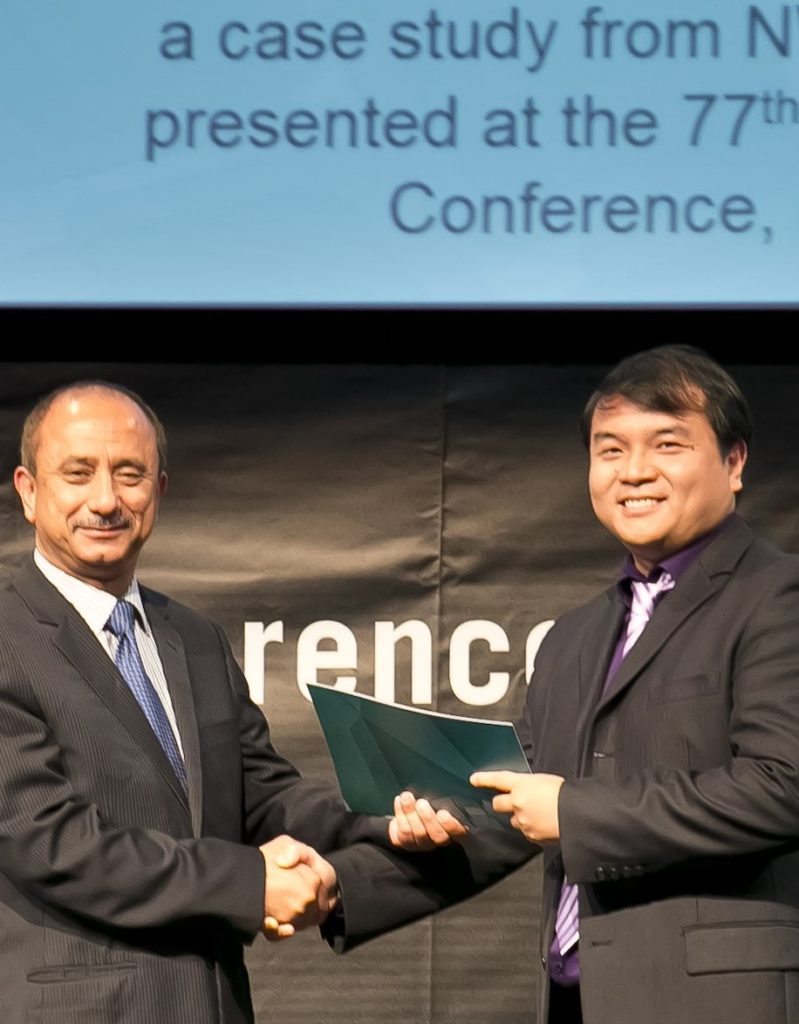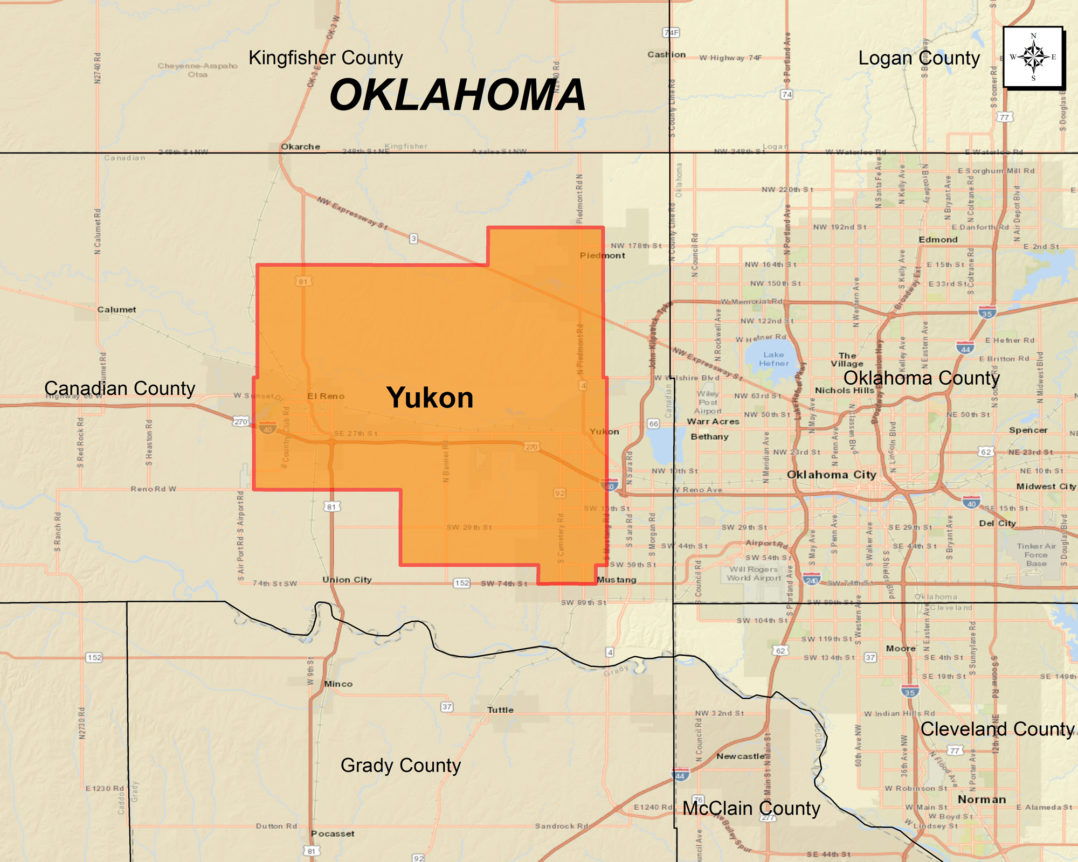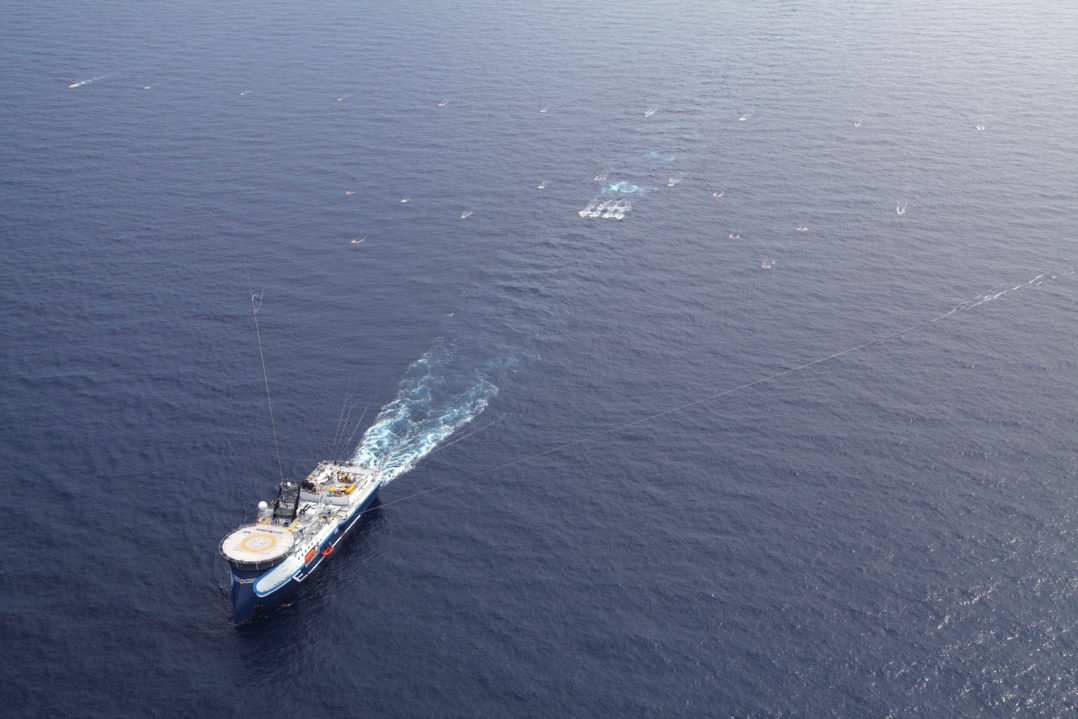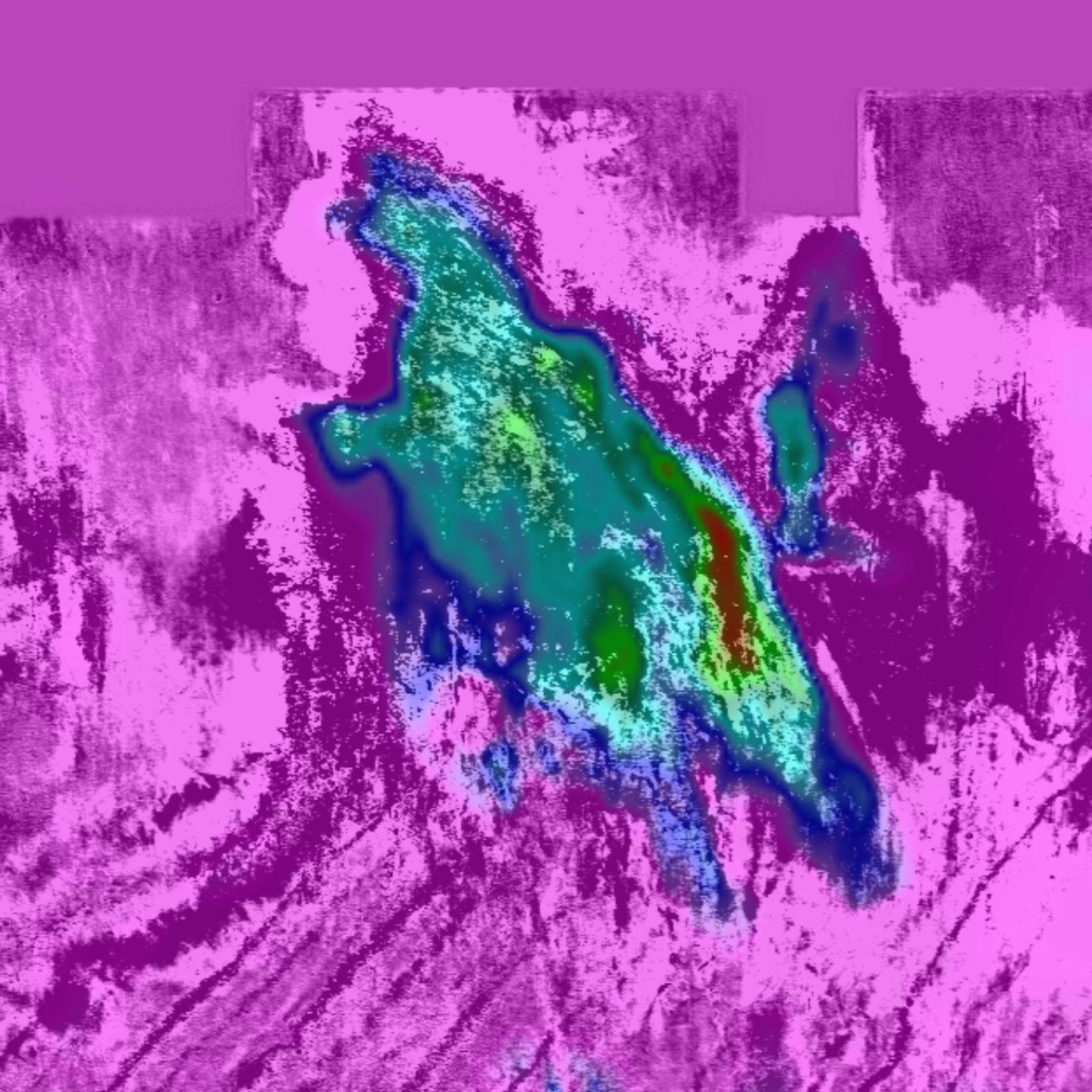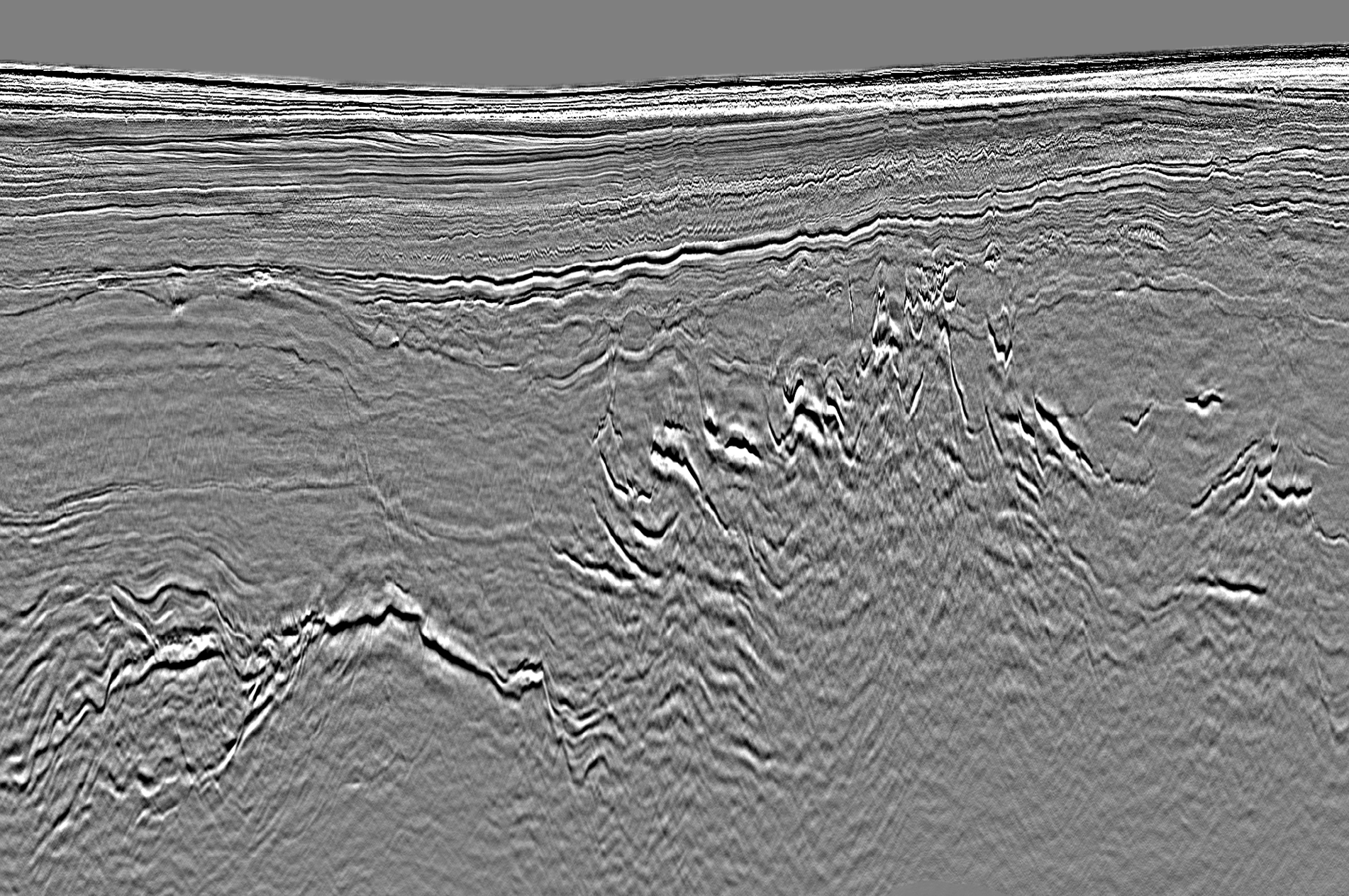CGG Processing Manager Singapore, Joe Zhou, has won the EAGE 2016 Guido Bonarelli Award in recognition of the best oral presentation for his paper entitled ‘Unlocking the full potential of broadband data with advanced processing technology, a case study from NWS Australia’.
The paper was co-authored with Peter Chia from Shell Australia and Jingyu Li, Henry Ng, Sergey Birdus, Keat Huat Teng, Phan Ying Peng, Jason Sun and He Yi from CGG and presented during the 77th EAGE Conference & Exhibition in Madrid in June 2015.
The case study describes the successful application of high-end broadband processing and imaging technologies to broadband seismic data acquired with variable-depth streamers and CGG’s proprietary BroadSource™ synchronized multi-level source on the Shell Sandman 3D survey conducted over the Browse Basin in 2013. The combined broadband solution effectively removed both the source and receiver ghosts to achieve high-resolution data with a superior signal-to-noise ratio and a maximum bandwidth of up to 2.5 – 200Hz.
The paper describes the key factors influencing the temporal resolution of marine seismic surveys and how the implementation of an advanced broadband processing flow removed the ghost and compensated for the earth’s attenuation effects. This “fullband” imaging workflow consisted of three CGG proprietary technologies: broadband source designature using the near-field hydrophone data, 3D receiver deghosting, and 3D volumetric Q-tomography and Q-compensating pre-stack depth migration to restore the resolution of the deeper seismic data affected by the Earth’s absorption. The extra-wide bandwidth obtained from these processes provides a final image with detailed resolution that enhances quantitative characterization, not only for shallow geo-hazards but also for resolving relatively thin reservoirs in the deep section.
Colin Murdoch, Executive Vice President, Subsurface Imaging, CGG, said: “The demand for high-quality high-resolution seismic data for prospect maturation continues to grow, particularly in deepwater basins. The ability to accurately remove or reduce both the source and receiver side ghosts has proved to be fundamental in extending the usable signal in both the ultra-low and ultra-high frequency ranges. Based on the first BroadSource survey conducted in the Asia-Pacific region, Zhou et al’s work on the Sandman project clearly demonstrates the improved resolution that can be achieved through application of recently developed broadband acquisition and imaging technologies. CGG is proud to be at the forefront of the development of these technologies and this recognition by the EAGE is well deserved by Zhou and his team.”

